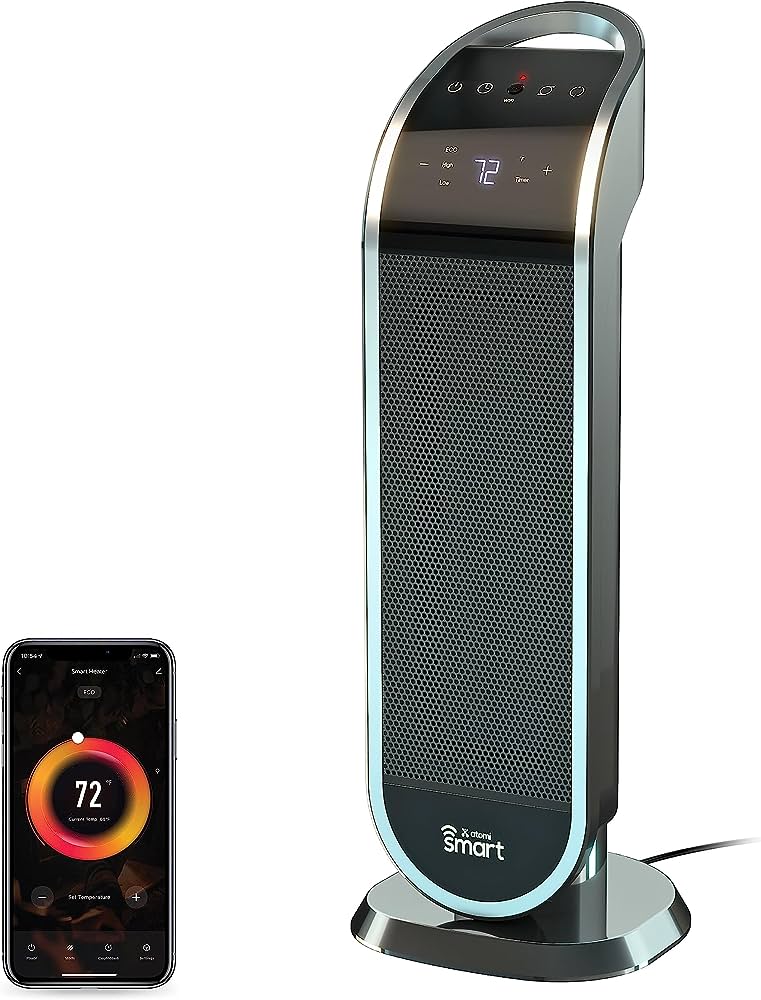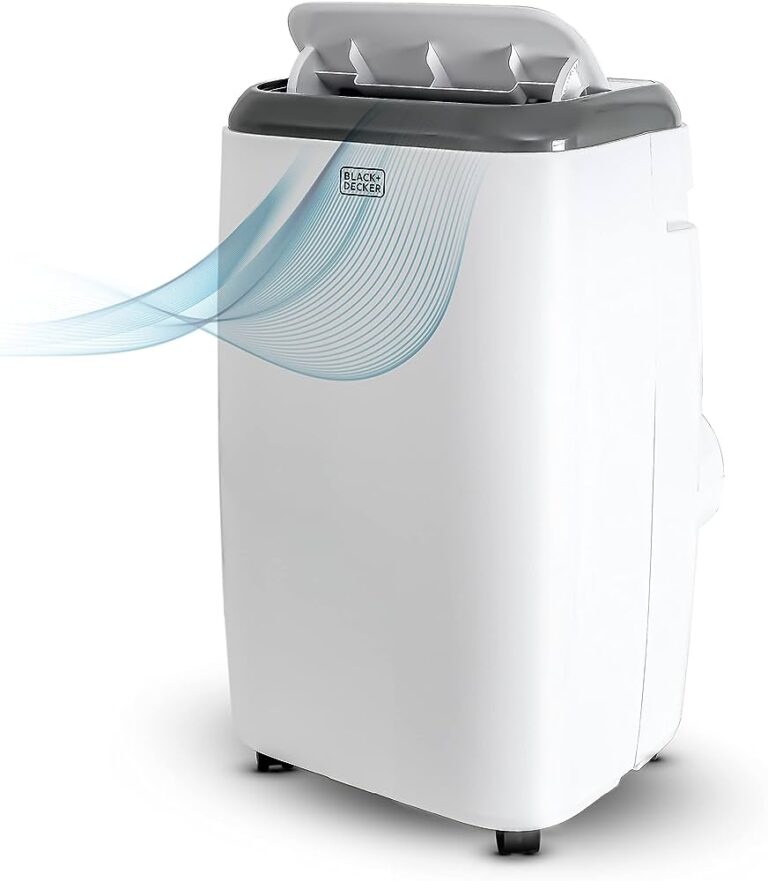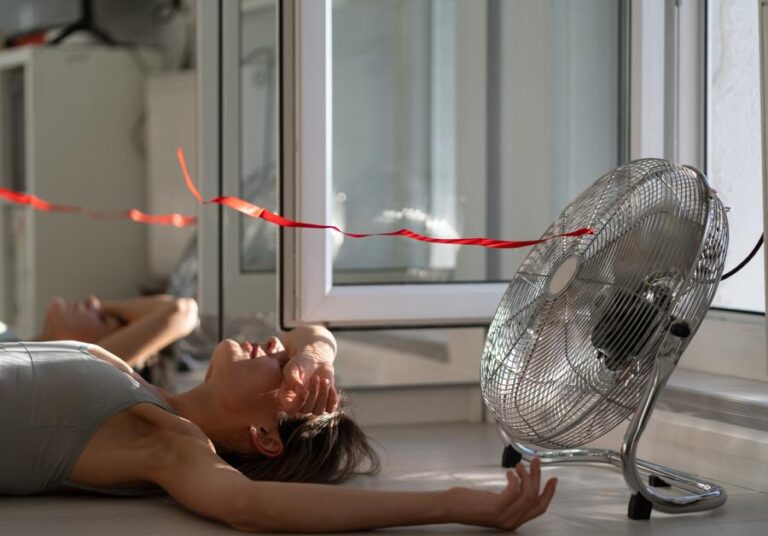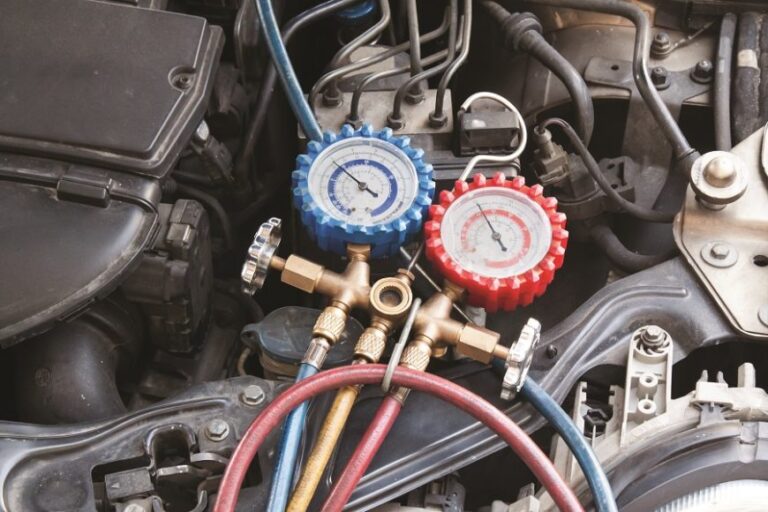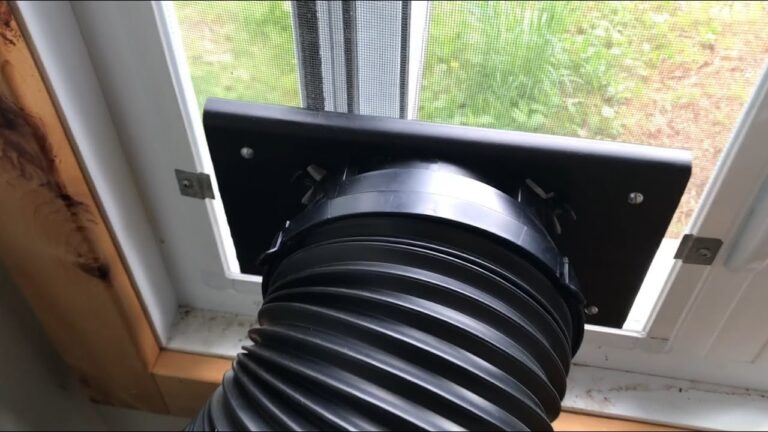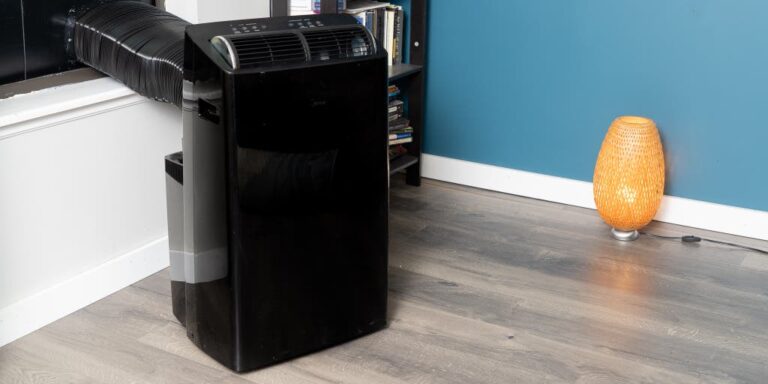Air Conditioner Beeps And Turns Off: Troubleshoot Now for Optimal Cooling
Air conditioner beeping and shutting off is often caused by a fault in the unit’s system or a tripped safety feature. Several factors can contribute to this issue, including a clogged air filter, low refrigerant levels, faulty thermostat, or a malfunctioning compressor.
A beeping AC can be frustrating, as it hinders the unit from cooling effectively and can indicate a potential problem. We will explore common reasons why an air conditioner might beep and turn off, along with troubleshooting steps to resolve the issue.
By understanding these causes, homeowners can take necessary actions or seek professional assistance to restore their AC’s functionality.
Common Causes Of Beeping And Shutting Off In Air Conditioners
Beeping and shutting off in air conditioners can be caused by a range of issues, such as dirty filters, low refrigerant levels, electrical problems, or faulty sensors. Regular maintenance and addressing these common causes can help prevent sudden shutdowns and maximize the performance of your air conditioner.
Air conditioners are designed to keep us cool and comfortable, but what happens when they start beeping and shutting off unexpectedly? Understanding the common causes behind this issue can help you troubleshoot and resolve the problem effectively. Here are a few potential culprits to consider:
Low Refrigerant Levels:
- Inadequate refrigerant can trigger the beeping and shutting off of your air conditioner.
- Low levels of refrigerant may be caused by leaks in the system.
- Insufficient refrigerant can cause the compressor to overheat and trigger a shutdown.
Dirty Air Filters:
- Accumulated dirt and debris in the air filters can cause airflow restrictions.
- When the air filters are dirty, the evaporator coil can freeze, triggering a safety feature that shuts off the system.
- Regularly cleaning or replacing your air filters is essential to prevent this issue.
Malfunctioning Thermostat:
- A malfunctioning thermostat can cause your air conditioner to beep and turn off unexpectedly.
- The thermostat is responsible for controlling the temperature settings and communicating with the AC unit.
- If the thermostat is faulty, it may send incorrect signals to the system, causing it to shut down.
By addressing these common causes, you can troubleshoot your air conditioner and ensure it functions optimally. Remember, regular maintenance and timely repairs can help prevent these issues and promote the long-term performance of your air conditioner.
Troubleshooting Steps For Low Refrigerant Levels
If your air conditioner is beeping and turning off, it may be due to low refrigerant levels. Follow these troubleshooting steps to address the issue and ensure proper cooling in your home.
Is your air conditioner beeping and turning off unexpectedly? One possible culprit could be low refrigerant levels. When the refrigerant level in your AC drops, it can lead to cooling issues and a malfunctioning system. But don’t worry, we’ve got you covered with some troubleshooting steps to help you address this problem.
Checking For Refrigerant Leaks:
- Inspect the refrigerant lines for any signs of leakage, such as oil stains or physical damage.
- Use a leak detection kit to identify any refrigerant leaks in the system.
- Check for frost or ice build-up on the refrigerant lines, which could indicate a leak.
Refilling The Refrigerant Levels:
- Contact a professional HVAC technician to recharge or refill the refrigerant levels accurately.
- Ensure that the technician uses the correct type and amount of refrigerant for your specific AC model.
- Avoid attempting to refill the refrigerant levels yourself, as it can be complicated and may cause further damage to the system if not done correctly.
Testing For Proper Cooling:
- Once the refrigerant levels have been replenished, perform a test to ensure that your air conditioner is cooling properly.
- Set the thermostat to a lower temperature and let the AC run for some time.
- Check if the cool air is being distributed evenly throughout your home or if there are any hot spots.
By following these troubleshooting steps, you can address the issue of low refrigerant levels in your air conditioner. Remember, it’s always best to enlist the help of a professional HVAC technician for any repairs or maintenance tasks to ensure the safety and efficiency of your AC system.
Fixing The Issue Of Dirty Air Filters
Fixing the issue of dirty air filters can resolve the problem of an air conditioner beeping and turning off. Regularly cleaning or replacing the filters allows for better airflow, preventing the system from overheating and shutting down.
Air conditioners are a lifesaver, especially during scorching summers when the heat seems unbearable. However, imagine this scenario: you turn on your AC, and after a few minutes, it starts beeping and shuts off. Frustrating, right? One common cause of this problem is dirty air filters.
But don’t worry, in this section, we will explore how to fix this issue and get your AC running smoothly again.
Locating And Accessing The Air Filters
To address the problem of dirty air filters in your air conditioner, you first need to locate and access them. Here’s how to do it:
- Check the user manual: Refer to the user manual that came with your air conditioner to find the exact location of the filters.
- Look for the filter compartment: Typically, the filter compartment is located either on the front panel of the AC unit or on the side.
- Remove the front panel or access door: Gently remove the front panel or access door to gain access to the filters.
Cleaning Or Replacing The Air Filters
Once you have located and accessed the air filters, you have two options: cleaning or replacing them. Let’s explore both options:
Cleaning The Air Filters
- Remove the filters: Carefully take out the air filters from the compartment.
- Rinse with water: Use lukewarm water and gently wash away the accumulated dirt and debris from the filters.
- Air dry or pat dry: Allow the filters to air dry completely or pat them dry with a clean cloth before reinstalling.
Replacing The Air Filters
- Purchase compatible filters: Identify the correct filter size and type required for your air conditioner model.
- Remove the old filters: Take out the old filters and dispose of them properly.
- Install the new filters: Insert the new filters into the compartment, ensuring they fit snugly.
Maintaining Regular Filter Cleaning
Cleaning or replacing your air filters just once is not enough to prevent the beeping and shutdown issue from recurring. Regular filter maintenance is crucial to keep your air conditioner running efficiently. Here are a few tips to help you with this:
- Clean or replace the filters every 1-2 months: Dust and debris can accumulate quickly, so check the filters regularly and take appropriate action when necessary.
- Monitor air quality indicators: Some modern air conditioners have built-in indicators that notify you when it’s time to clean or replace the filters. Keep an eye on these indicators.
- Set reminders: Set reminders on your calendar or phone to ensure you don’t forget the importance of regular filter maintenance.
By locating and accessing the air filters, cleaning or replacing them as needed, and maintaining regular filter cleaning, you can avoid the annoying issue of your air conditioner beeping and turning off. Remember, a well-maintained AC not only keeps you cool but also helps extend the lifespan of your unit.
Stay proactive and enjoy the refreshing comfort of your air conditioner all summer long.
:max_bytes(150000):strip_icc()/best-portable-fans-air-conditioners-composite-0623-f74c2bea5dbc4d8393fbad6df5607eab.jpg)
Credit: www.marthastewart.com
Resolving Problems With The Thermostat
Resolve problems with your air conditioner’s thermostat. Discover why it beeps and turns off, and find solutions to keep your AC running smoothly.
Do you find your air conditioner beeping and turning off unexpectedly? One possible cause for this issue could be problems with the thermostat. Luckily, there are several steps you can take to resolve these problems and get your AC back up and running smoothly.
Let’s explore some solutions for dealing with thermostat-related issues:
Checking Thermostat Settings
- Ensure that the thermostat is set to the correct temperature: Double-check that the temperature settings on the thermostat are appropriate for your comfort. Sometimes, a simple adjustment can resolve the beeping and shut-off problems.
- Verify the cooling mode: Make sure that the thermostat is set to cooling mode rather than heating or fan only mode. If it’s not on the correct mode, adjust it to cooling mode to prevent any conflicts with the air conditioner’s operation.
- Check the fan settings: Ensure that the thermostat’s fan settings are appropriately configured. If the fan is set to “auto,” it will work in conjunction with the air conditioner. However, if it’s set to “on,” the fan will run continuously even when the AC is not actively cooling.
Calibrating Or Replacing The Thermostat
- Calibrating the thermostat: Over time, a thermostat can become inaccurate, leading to temperature discrepancies and potential malfunctions. Consult the instructions or user manual for your thermostat model on how to recalibrate it properly. Performing a calibration process may improve its accuracy and resolve any issues causing the beeping and turning off of your air conditioner.
- Replacing the thermostat: If calibration doesn’t solve the problem, it might be necessary to replace the thermostat. Consider seeking professional assistance to determine the compatibility and installation requirements for a new thermostat. Upgrading to a modern and efficient model can enhance control over your AC system and prevent future problems.
Upgrading To A Programmable Thermostat
- Benefits of a programmable thermostat: By upgrading to a programmable thermostat, you gain numerous benefits such as increased energy efficiency and customized temperature scheduling. These thermostats allow you to set different temperature levels for specific times of the day, automatically adjusting to your preferred comfort settings.
- Easy installation: Installing a programmable thermostat is typically straightforward and user-friendly, providing step-by-step instructions. However, if you’re unsure or prefer professional assistance, don’t hesitate to call an HVAC technician.
- Enhanced AC performance: With programmable thermostats, you can optimize your air conditioner’s performance by scheduling it to turn on before you arrive home, ensuring a comfortable environment upon your arrival. This feature eliminates the need to rely on manual adjustments, reducing the risk of any potential malfunctions.
Resolving issues with the thermostat could be the key to getting your air conditioner back on track. By accurately checking the settings, calibrating or even replacing the thermostat, and upgrading to a programmable model, you can enjoy a properly functioning AC system without the frustration of unexpected beeping and shut-offs.
Addressing Other Possible Causes Of Beeping And Shutting Off
To address the beeping and shutting off issue with your air conditioner, it’s important to explore other potential causes. Check for blocked air filters, low refrigerant levels, faulty thermostat settings, or electrical problems.
Is your air conditioner beeping and turning off unexpectedly? Don’t fret, as there are various reasons why this might be happening. In this section, we will explore some common culprits behind this issue.
Electrical Issues And Power Surges
- Power surges: Sudden increases in electrical power can cause your air conditioner to beep and shut off. This can happen when there is a disturbance in the electrical supply, such as during a thunderstorm.
- Overloaded circuit: If your air conditioner is connected to a circuit that is already handling a heavy electrical load, it may overload and trigger the beeping and shutting off. Check if there are other high-power appliances on the same circuit.
- Faulty wiring: Defective or damaged wiring can disrupt the normal functioning of your air conditioner. If the system detects irregular electrical flow, it may automatically shut off and emit a beeping sound as a safety measure.
Clogged Condensate Drain
- Accumulated debris: Over time, dirt, dust, and other debris can clog the condensate drain of your air conditioner. When this occurs, the unit may start beeping and shutting off to prevent water from overflowing and causing damage.
- Mold or mildew growth: A neglected condensate drain can become a breeding ground for mold or mildew. This not only obstructs proper drainage but can also trigger a beeping alarm as a result of the system detecting an issue.
Frozen Evaporator Coil
- Low refrigerant levels: Inadequate refrigerant levels can cause the evaporator coil to freeze. When this happens, the air conditioner senses the issue and reacts by beeping and shutting off in order to prevent further damage to the system.
- Restricted airflow: Insufficient airflow across the evaporator coil can also lead to freezing. Dirty air filters, blocked vents, or the improper positioning of furniture can impede the flow of air and result in the beeping and shutting off of your unit.
Remember, identifying the exact cause of your air conditioner’s beeping and shutting off may require professional assistance. If you’re not confident in troubleshooting the problem yourself, it’s best to contact a qualified HVAC technician for expert guidance and repair.
Importance Of Regular Air Conditioner Maintenance
Regular air conditioner maintenance is essential to prevent issues like beeping and turning off. By ensuring proper cleaning, checking for leaks, and addressing any malfunctions promptly, you can extend the lifespan of your AC and enjoy optimal cooling performance throughout the year.
Regular cleaning and maintenance of your air conditioner is crucial for its optimal performance and longevity. By taking the time to care for your AC unit, you can prevent malfunctions, extend its lifespan, and ensure that it continues to cool your home efficiently.
Here are some essential tips and practices to keep your air conditioner running smoothly:
Regular Cleaning And Maintenance Tips:
- Clean or replace filters: Dirty filters can restrict airflow and cause your air conditioner to work harder. Make sure to clean or replace them regularly, ideally every month or as recommended by the manufacturer.
- Clear debris from the condenser unit: Remove any leaves, dirt, or debris that may have accumulated around the condenser unit. This will ensure proper airflow and prevent overheating.
- Clean the evaporator coils: Over time, the evaporator coils can accumulate dirt and dust, affecting the efficiency of your air conditioner. It’s important to clean them regularly to maintain optimal performance.
- Check and clean the condensate drain: A clogged condensate drain can cause water to back up and potentially damage your air conditioner. Check the drain and clean it to prevent any blockages.
- Inspect electrical connections: Inspect and tighten any loose electrical connections in your AC unit. This will ensure safe and seamless operation.
- Straighten bent fins: The condenser fins can become bent, impacting the airflow. Gently straighten any bent fins to maintain optimum performance.
Scheduling Professional Inspections And Tune-Ups:
While regular maintenance tasks can be performed by homeowners, it is highly recommended to schedule professional inspections and tune-ups for your air conditioner. HVAC professionals have the expertise and knowledge to identify any potential issues and provide necessary repairs or adjustments.
Here’s why professional maintenance is important:
- Expert evaluation: HVAC professionals can thoroughly inspect your air conditioner, identifying any underlying issues or potential problems that may go unnoticed otherwise.
- Efficient performance: Regular tune-ups by professionals ensure that your air conditioner is running at its peak efficiency, allowing it to cool your home effectively while minimizing energy consumption.
- Prevent major breakdowns: Professional maintenance can help detect and correct minor issues before they develop into major malfunctions, avoiding costly repairs and extended periods without cooling.
Extending The Lifespan Of Your Air Conditioner:
Proper and regular maintenance can significantly extend the lifespan of your air conditioner. By taking care of your unit, you can enjoy its cooling benefits for many years to come. Here’s how regular maintenance helps in prolonging your AC’s lifespan:
- Preventing wear and tear: Regular cleaning and maintenance tasks help prevent the accumulation of dirt, dust, and debris that can cause wear and tear on your air conditioner’s components.
- Ensuring efficient operation: By keeping your air conditioner clean and well-maintained, you allow it to operate smoothly and efficiently, reducing the strain on its various parts and extending its lifespan.
- Addressing minor issues: Timely maintenance allows for the identification and resolution of minor issues, preventing them from escalating into more serious problems that could shorten the lifespan of your air conditioner.
Taking care of your air conditioner through regular cleaning, professional inspections, and proper maintenance is essential for its optimal performance and longevity. By implementing these tips and best practices, you can keep your AC unit in top shape, ensuring a comfortable and cool indoor environment for years to come.
Seeking Professional Help When Troubleshooting Fails
When troubleshooting your air conditioner and it continuously beeps and turns off, it might be time to seek professional help for a more comprehensive solution. Don’t let the issue persist, contact an expert to ensure your AC is functioning properly and efficiently.
Identifying When A Professional’S Assistance Is Needed
It’s frustrating when your air conditioner beeps and turns off, even after attempting troubleshooting on your own. While minor issues can often be resolved without professional help, there are situations where it’s best to call in a qualified HVAC technician.
Here’s how you can identify when their assistance is needed:
- Unusual noises persist: If your air conditioner continues to make strange noises even after troubleshooting, it’s a clear sign that something more serious is going on. These noises can include grinding, rattling, or screeching sounds. Seeking professional help will ensure the issue is properly diagnosed and resolved.
- Repeated system shutdowns: If your air conditioner keeps shutting down unexpectedly, it’s time to involve a professional. Frequent system shutdowns could indicate an underlying problem, such as an electrical issue or a malfunctioning component. A qualified HVAC technician will be able to identify the root cause and provide a reliable solution.
- Limited or no cooling: If your air conditioner is blowing warm or insufficiently cool air despite your troubleshooting efforts, it’s a clear indication that there is a more complex issue at hand. It could be due to refrigerant leaks, compressor problems, or issues with the ductwork. Seeking professional assistance will help determine the exact cause and ensure the appropriate repairs are made.
- Foul odors persist: If unpleasant odors emanate from your air conditioner despite cleaning the filters and vents, it’s time to seek professional help. Persistent foul odors could be a sign of mold growth, a dead animal within the system, or other issues that require professional cleaning or repair.
Contacting Qualified Hvac Technicians
When troubleshooting fails to resolve your air conditioner’s beeping and shutdown issues, it’s crucial to reach out to qualified HVAC technicians. Here are the steps to take when contacting them:
- Research reputable HVAC companies: Start by researching and compiling a list of reputable HVAC companies in your area. Look for those with positive customer reviews and high ratings.
- Check qualifications and certifications: Before reaching out to any HVAC technicians, check their qualifications and certifications. Ensure they are licensed, insured, and have relevant experience in air conditioner repairs.
- Schedule a consultation: Contact the HVAC companies on your list and schedule a consultation or service appointment. During this appointment, the technician will inspect your air conditioner, diagnose the issue, and provide a solution.
- Ask for a quote and warranty details: When speaking with the HVAC technician, ask for a detailed quote that includes the cost of repairs or any necessary replacements. Additionally, inquire about warranty coverage for the service provided to protect yourself in case of future issues.
- Compare quotes and make an informed decision: After receiving quotes from multiple HVAC technicians, compare the prices, warranty coverage, and the technician’s expertise. Once you have all the necessary information, make an informed decision on which technician to hire.
Exploring Warranty Coverage And Repair Options
When seeking professional help for your air conditioner’s beeping and shutdown issues, it’s essential to explore warranty coverage and repair options. Here’s what you need to consider:
- Manufacturer’s warranty: Check if your air conditioner is still covered under the manufacturer’s warranty. If it is, contact the manufacturer or the authorized service center to schedule repairs or replacements.
- Extended warranty: If you have opted for an extended warranty, review its terms and conditions. Depending on the coverage, you might be eligible for repairs without incurring additional costs.
- Repair options: Discuss repair options with the HVAC technician. They will assess the extent of the issue and recommend the most suitable solutions. This could involve replacing specific components, conducting a thorough cleaning, or even suggesting a full unit replacement.
- Cost considerations: When exploring repair options, consider the cost implications. Compare the expense of repairs against the potential benefits of investing in a new, more energy-efficient unit. The HVAC technician can provide guidance based on their assessment.
- Maintenance plans: Inquire about maintenance plans offered by the HVAC company. Regular maintenance can help prevent future issues and extend the lifespan of your air conditioner. Discuss the benefits and costs associated with maintenance plans to make an informed decision.
Remember, seeking professional help and exploring warranty coverage and repair options are crucial steps in resolving your air conditioner’s beeping and turning off issues. Trusting qualified HVAC technicians ensures that the problem is addressed promptly and effectively, allowing you to enjoy cool and comfortable temperatures again.
Frequently Asked Questions Of Air Conditioner Beeps And Turns Off
Why Does My Air Conditioner Beep And Then Turn Off?
When an air conditioner beeps and turns off, it could indicate a variety of issues. Possible causes include a clogged air filter, low refrigerant levels, an overheating compressor, or a malfunctioning control board. It’s important to have a professional technician inspect and diagnose the problem to ensure proper repairs can be made.
How Can I Troubleshoot My Air Conditioner That Beeps And Shuts Down?
To troubleshoot an air conditioner that beeps and shuts down, you can try a few steps. Start by checking the air filter for dirt or obstructions and clean or replace it if necessary. Ensure that the thermostat settings are correct and that there are no blockages in the outdoor unit.
If the issue persists, it’s best to seek the assistance of a qualified HVAC technician.
Is It Normal For An Air Conditioner To Beep Before Turning Off?
No, it is not normal for an air conditioner to beep before turning off. Beeping usually indicates a problem with the unit. If the beeping occurs consistently, it’s recommended to have the system inspected by a professional technician. They can identify the underlying issue and perform any necessary repairs to prevent further damage to the unit.
Why Does My Air Conditioner Turn Off After Beeping For A While?
If your air conditioner turns off after beeping for a while, it could be due to a safety feature built into the system. This safety feature is designed to protect the unit from potential damage caused by a malfunction or irregular operation.
To resolve the issue, it’s advisable to contact a qualified HVAC technician who can diagnose and repair the underlying problem.
Conclusion
If your air conditioner is beeping and turning off, it is important to address the issue promptly. By identifying the underlying cause, you can avoid further complications and potentially save on repair costs. Start by checking the air filter for any debris or accumulation, as a dirty filter can restrict airflow and cause the system to overheat.
Additionally, ensure that the thermostat is set to the desired temperature and the batteries are working properly. If these troubleshooting steps don’t solve the problem, it may be necessary to consult a professional HVAC technician who can diagnose and repair any underlying mechanical issues.
Remember, regular maintenance and cleaning can help prevent these issues from arising in the future. By taking proactive measures, you can ensure that your air conditioner works efficiently and keeps you comfortable during the hot summer months.

